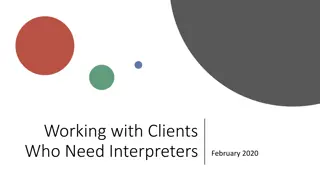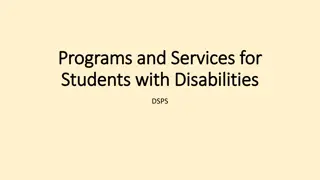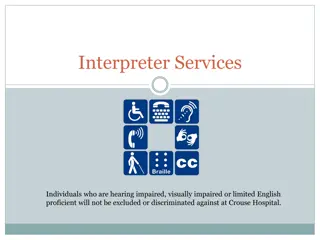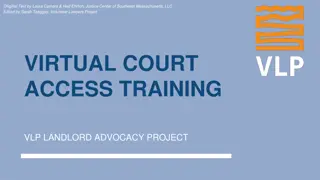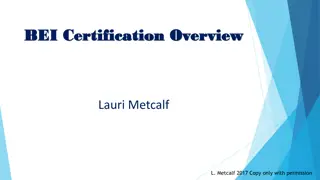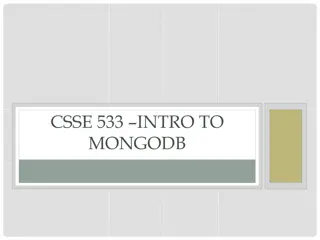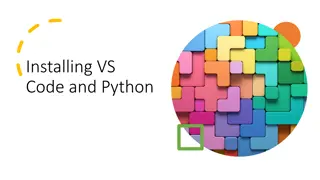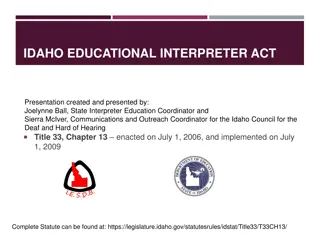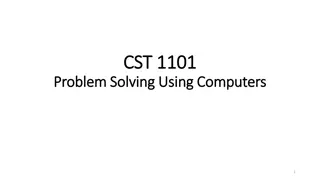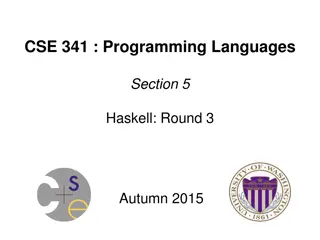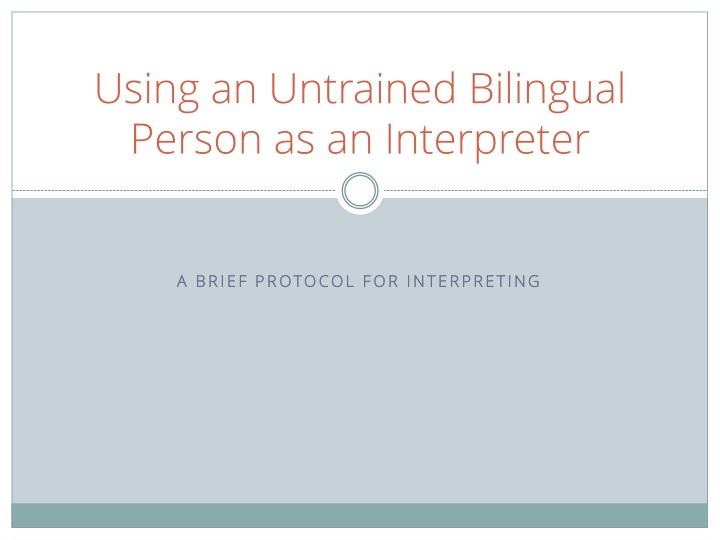
Interpreter Protocol for Effective Communication
Discover essential protocols for using an untrained bilingual person as an interpreter, highlighting responsibilities, professionalism, accuracy, and cultural sensitivity. Learn key steps like pre-conferencing, positioning, maintaining confidentiality, and ensuring accuracy to foster successful communication between parties.
Download Presentation

Please find below an Image/Link to download the presentation.
The content on the website is provided AS IS for your information and personal use only. It may not be sold, licensed, or shared on other websites without obtaining consent from the author. If you encounter any issues during the download, it is possible that the publisher has removed the file from their server.
You are allowed to download the files provided on this website for personal or commercial use, subject to the condition that they are used lawfully. All files are the property of their respective owners.
The content on the website is provided AS IS for your information and personal use only. It may not be sold, licensed, or shared on other websites without obtaining consent from the author.
E N D
Presentation Transcript
Using an Untrained Bilingual Person as an Interpreter A BRIEF PROTOCOL FOR INTERPRETING A BRIEF PROTOCOL FOR INTERPRETING
Interpreter Responsibilities Professionalism Accuracy Skill Positioning Confidentiality Integrity Thoroughness Trust
Crash Course in Protocol Pre-conference with both parties Position yourself Omit nothing, add nothing, change nothing Use the first person Allow for culture explanation Maintain confidentiality Have integrity
Pre-conference with Both Parties Plan the questions you will need to ask (from the provider) Allow the provider to introduce himself to the patient Introduce yourself to the patient State that you will say everything exactly as both parties say it State that if you need to explain something cultural you will make a motion (signal) before speaking State that everything is confidential Ask for questions
Position Yourself Agency and client interaction is the focus don t interfere Sit beside and slightly behind the client (or the agency person) Remain unobtrusive and out of direct view You are the voice of both parties, you are not the focus
Be Complete and be Accurate Omit nothing what is insignificant to you may mean something to one of the others in the session Add nothing you may influence the session without being aware Change nothing do not inadvertently influence the conversation
Use the First Person The session is between the agency and the client. Do not insert yourself by saying She says she s talked with them before. Instead say, I ve talked with them before. Remember, say it exactly as they say it.
Cultural Explanations When the client is explaining something that the provider is unfamiliar with, you need to explain it. Stop the session. Tell the client you need to explain. Explain the cultural tradition or belief to the agency. Go back to being just a voice.
Confidentiality Don t say anything you wouldn t want others saying about you. What goes on in the session, stays in the session. Only share with others what they need to know. Don t bring information to the session that the patient hasn t.
Integrity If you aren t capable, don t do it. Do not accept the interpreter assignment if: The subject matter is not your expertise The topic is too personal (rape, miscarriage, sexual abuse, domestic violence) Your personal relationship with the client will put you in danger or compromise your objectivity There is a conflict of interest
Professionalism Dress and speak appropriately Be respectful of others, of time, of the situation Be friendly, don't befriend Do NOT accept payment or gifts from the client
Trust Be on time Be accurate Be honest Be true to your word Be professional Accept responsibility
Just the Facts Refrain from offering advice or opinions Remember you are the messenger, not the decision maker You can advocate by offering information available to the public that clients may not know how to access Don t make the client feel pressured
Know Your Stuff Be accurate in all that you say; be sure the message is correct. Make yourself aware of any cultural or dialectal differences Knowing words is not the same as knowing the meaning
Please list the following: Your vital statistics One use for nylons. The highest number of people you have seen on a tricycle.
Its all about the meaning! Vital statistics 1. statistics concerning human life or the conditions affecting human life and the maintenance of population, as deaths, births, and marriages. 2. Facetious. Measurement.
Be Non-judgmental You don t know the whole story. It makes sense if you understand it. You don t always get it right to someone else. You may find yourself in the same position some day.


